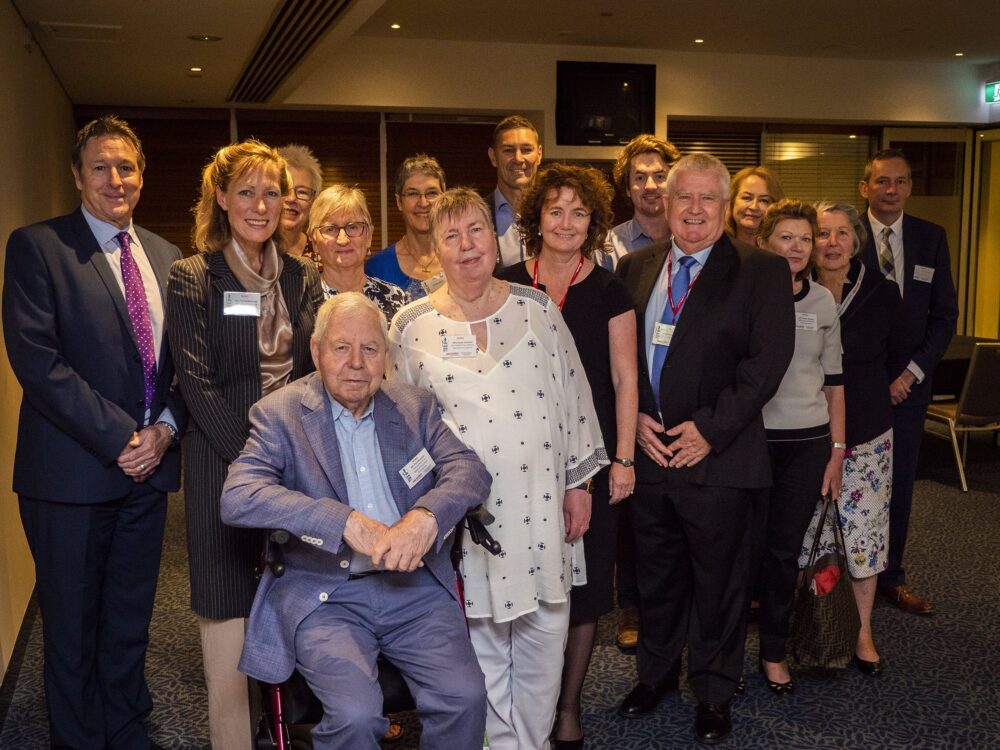The opening address at an international conference on Chronic Fatigue Syndrome marked the announcement of two funded professorships for Griffith researchers worth more than $2 million.
Stafford Fox Medical Research Foundation trustee Paul Brotchie announced the funding of two full Professorial Research Fellowships for four years at the 2018 National Centre for Neuroimmunology and Emerging Diseases Research, Innovation and Discovery CFS/ME International Conference held at Crowne Plaza on the Gold Coast.

Professors Sonya Marshall-Gradisnik and Donald Staines
The fellowships were bestowed to Co-Directors of Griffith’s NCNED Menzies Health Institute of Queensland Professors Sonya Marshall-Gradisnik and Donald Staines for the advancement of biomedical and clinical research into the treatment of Chronic Fatigue Syndrome / Myalgic Encephalomyelitis (CFS/ME).
“These research Fellowships are in recognition of the outstanding achievements of Professors Marshall-Gradisnik and Staines in biomedical discoveries in CFS/ME,” Brotchie said.
“These Stafford Fox Medical Research Foundation Fellowships will enable concentrated effort in discovering effective pharmacotherapeutics for the treatment of this disabling illness.”
The Stafford Fox Medical Research Foundation Fellowships will be the first of their kind to be awarded nationally or internationally In CFS/ME research and are valued at $2.2 million over four years.
This new funding for Professors Marshall-Gradisnik and Staines is in addition to $6.1 million they have received from the Foundation in the past five years at NCNED.
“The whole NCNED team is proud and delighted at the recognition of our achievements in this way. We are immensely grateful to the Stafford Fox Medical Research Foundation for their foresight in creating these Fellowships,” Prof Marshall-Gradisnik said.
“It is indicative of the amount of work that we’ve done and the significant research results that we’ve achieved, which translates to understanding the pathology, and a large reason for the fellowships is to accelerate that and to find pharmaco-therapeutic, interventions based on those discoveries because there’s no universal treatment.”

Griffith Health Centre
Prof Staines said the focus of the NCNED team’s work being for the benefit of patients was in synergy with NCNED’s sense of community participation and putting patients first.
“We look forward to greater involvement of clinicians in the development of contemporary guidelines for the proper management of CFS/ME,” Prof Staines said.
“We have three major aims to achieve during the four-year Fellowship: one is to describe the pathemechanism of the illness, what’s the pathology and why does it cause the illness it does. Second, is based on that which is to develop a diagnostic test so that GPs and specialists can more promptly diagnose the illness. And thirdly, we will be able to develop drugs that may be of benefit for the treatment of the illness using the equipment and the research capacity that we have.”
Director of Menzies Health Institute of Queensland (MHIQ), Griffith University, Professor Paul Scuffham said: “These Fellowships cement a national and international initiative by NCNED for a new research consortium, the Consortium Health International for Myalgic Encephalomyelitis, to be known as CHIME. It begins a wonderful new era in CFS/ME research to benefit patients worldwide.”
Professors Marshall-Gradisnik and Staines are expected to take up their appointments at MHIQ in the New Year.



